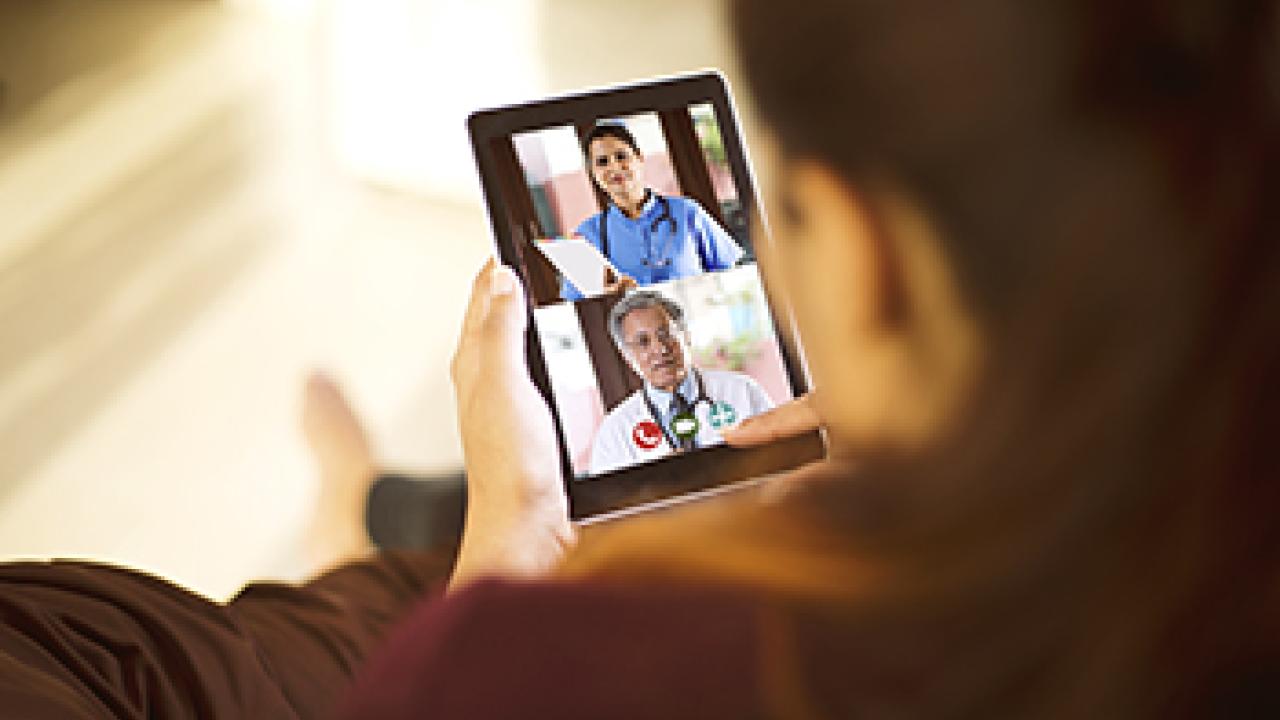
Electronic health systems deployed during COVID-19 help halt Hep B
Findings from END B study could serve as model for eliminating deadly virus that causes liver cancer
At the beginning of the COVID-19 pandemic, community health clinics saw a significant drop in patient visits. Important screenings like those for the hepatitis B virus (HBV) were getting missed, which was a setback for a local program called END B to end the transmission of HBV—a leading risk factor for liver cancer.
HBV is one of the greatest racial health disparities in the country. There are an estimated 1 in 12 Asian Americans in the U.S. infected with HBV in comparison to 1 in 1,000 non-Hispanic whites.
“Our data show that community health centers harbor a high prevalence of undiagnosed HBV. By comparison, the national average of hepatitis B prevalence is only 0.35%. We need to continually create solutions to reach those who have never been tested,” said UC Davis Health hepatologist Eric Chak who is hepatology director of END B.
The END B program was started in 2019 thanks to a $1.5 million grant from the U.S. Department of Health and Human Services Office of Minority Health. The federal grant was used to create a unique partnership with UC Davis and the Health and Life Organization (HALO). HALO is the largest regional health care provider to Asian Americans. In 2020, it teamed up with UC Davis researchers to determine if electronic tools could help to keep the END B program from losing ground during the pandemic.
Findings were summarized in the article “Enhancing Electronic Health Systems to End Transmission of Chronic Hepatitis B during COVID-19: A Collaborative Approach” published in the June issue of Clinical Liver Disease.
The article describes how using electronic health records proactively during the pandemic, together with bilingual/bicultural outreach, increased HBV screenings of underserved populations.
Cancer center determined to reduce risk of hepatitis B in Asian Americans
An estimated 850,000 to 2.2 million people in the U.S. are living with chronic HBV, but only a third of them have been diagnosed. HBV spreads when someone comes in contact with the blood, semen or other body fluid of an infected person. The disease disproportionately affects Asian Americans, who constitute 6% of the US population but experience almost 60% of all U.S. cases.
The UC Davis Comprehensive Center is committed to understanding and reducing the HBV disparity among Asian Americans. Researchers determined, for example, that Hmong Americans experience the shortest survival due to chronic hepatitis B infection and that screening rates in that community could increase significantly using bilingual and bicultural lay health educators. The cancer center has screened more than 6,000 Asian Americans for the virus in recent years.
“What really excites me is that END B will allow us to comprehensively decrease the transmission of HBV, not only in adults, but, in collaboration with Sacramento County and HALO, we can potentially eliminate the perinatal transmission of HBV and assure that future generations can be spared” said Primo Lara Jr., director of the UC Davis Comprehensive Cancer Center.
“By using an electronic health system-based registry, we were able to diagnose a high number of high-risk patients compared to a hit-or-miss system,” said Moon Chen Jr., director for the Office of Community Outreach and Engagement at the UC Davis Comprehensive Cancer Center .
One way to eliminate HBV is to prevent transmission from a mother to her baby, which is highly effective if HBV is detected prenatally. Early screening for HBV mitigates the risk for perinatal HBV transmission and allows for preventative treatment. For this reason, HALO focuses on screening and treating pregnant mothers.
New electronic system
In the first month of the pandemic, the HALO clinics saw a 70% decrease in patient visits and there were no telehealth services in place. An electronic health record-based registry of high-risk patients was established, and HBV tests were ordered without patients coming into the clinics.
A bilingual case navigator followed each patient found to be HBV positive and standard HBV treatment was provided. Mothers-to-be with high HBV viral loads were started on tenofovir 300 mg/day to prevent transmission to their newborns who were also vaccinated against HBV at birth.
As a result of early adoption of telehealth service at HALO, completion of HBV testing among local Asian American pregnant women has remained only slightly below pre-pandemic levels. The testing of high-risk patients (non-pregnant Asian Americans) actually led to a large increase in the number of tests completed during the pandemic and a rise in HBV cases detected.
“It is our expectation that END B could become a model for fighting HBV nationally, particularly through eliminating perinatal transmission of HBV and thus spare future generations from HBV-linked cancer,” said Chen.
UC Davis Comprehensive Cancer Center
UC Davis Comprehensive Cancer Center is the only National Cancer Institute-designated center serving the Central Valley and inland Northern California, a region of more than 6 million people. Its specialists provide compassionate, comprehensive care for more than 15,000 adults and children every year and access to more than 150 active clinical trials at any given time. Its innovative research program engages more than 225 scientists at UC Davis who work collaboratively to advance discovery of new tools to diagnose and treat cancer. Patients have access to leading-edge care, including immunotherapy and other targeted treatments. Its Office of Community Outreach and Engagement addresses disparities in cancer outcomes across diverse populations, and the cancer center provides comprehensive education and workforce development programs for the next generation of clinicians and scientists. For more information, visit cancer.ucdavis.edu.